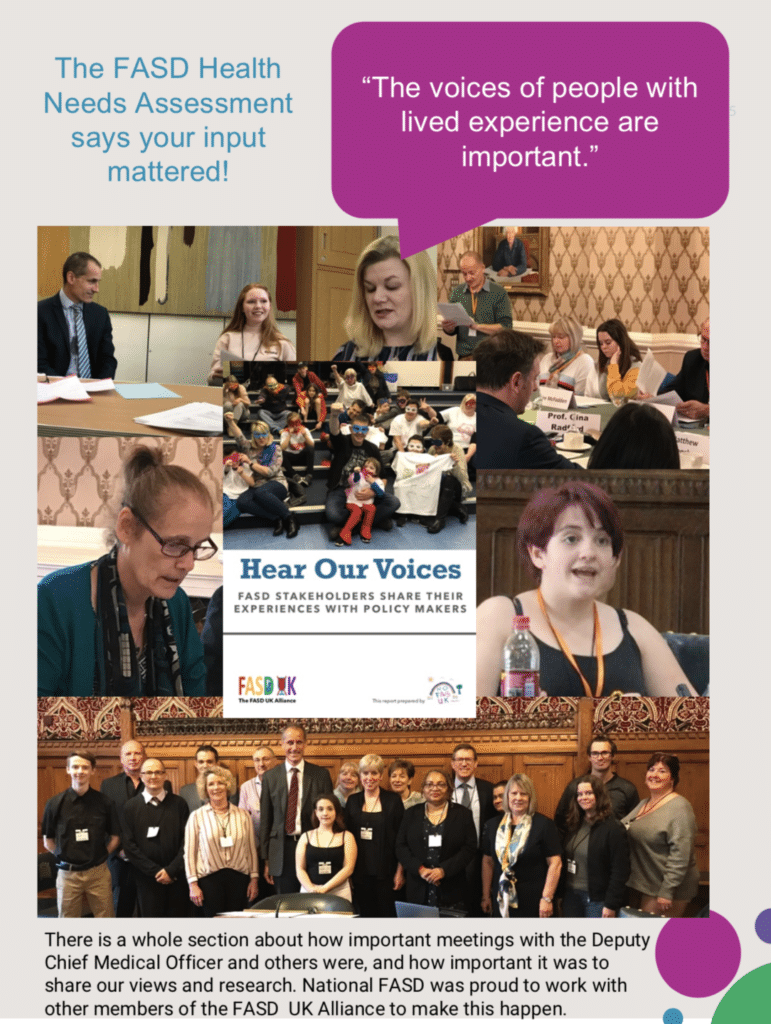
The Department of Health and Social Care released its first FASD Health Needs Assessment for England on International FASD Day, 9 September 2021 at an extraordinary meeting of the APPG on FASD that was part of the National Dialogue on International FASD Conference, organised by Sheffield Safeguarding Children’s Partnership.
The Needs Assessment highlights:
The Department has convened cross-government meetings and has been studying FASD more thoroughly. It has now identified a point person for FASD. In 2020 it provided its first grants related to FASD. National FASD received one of these awards in a partnership bid with the Seashell Trust.
These are important steps but so much more can be done with leadership and political will. National FASD recommends that the DHSC must:
On 22 October 2018, 26 participants took part in what many believe to be the first FASD stakeholders meeting convened by the UK Government. National FASD was approached by Professor Gina Radford the Deputy Chief Medical Officer at the Department of Health and Social Care England to host an event with her, as well as service users and stakeholders, to discuss the future policy development on issues relating to Foetal Alcohol Spectrum Disorders (FASD).
This followed on from a meeting held on 17th September with a panel of health and care experts to get their perspectives. Many important points were raised by stakeholders throughout the meeting.
A very powerful session involved six adults and young adults with FASD who shared their personal experiences trying to access diagnosis, support and services. This was the core of the session, and a reminder that these issues deeply affect the wellbeing of individuals and families across the UK. Online feedback from 22 individuals with FASD also was distributed.
The agenda included presentations by:

Following the meeting, the Department of Health took pivotal steps, including identifying key people to work in the department to work on FASD, convening interdepartmental meetings on FASD and releasing its first funding bid for FASD projects. In May 2019, the Department announcement that NICE would establish a Quality Standard on FASD.
All of the changes that are coming are due to the hard work and powerful advocacy of individuals with FASD and their supporters over decades. We are all standing on the shoulders of giants. It finally looks like change is on the way, though a great deal of work is yet to be done to be sure it’s meaningful.